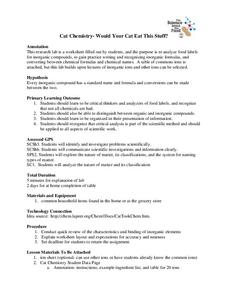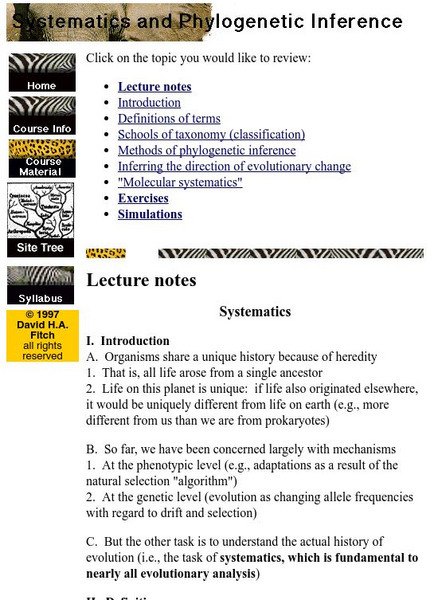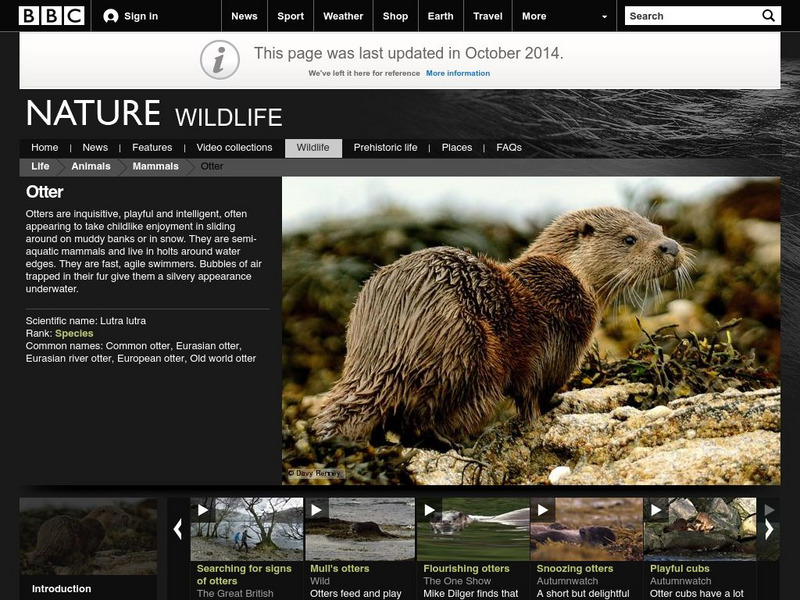Iowa State University
A Model of Learning Objectives (Revision of Bloom's Taxonomy)
What would a three-dimensional representation of Bloom's revised taxonomy of the cognitive domain look like? Get a glimpse of the complex classification system that is frequently referenced in education to distinguish levels of...
Cornell University
What is IPM?
Discover what a pest is and how to identify one with a lesson that looks closely at our outside world and taxonomy. Scholars investigate insects and plants to practice their identification skills, take a survey, and explore the...
Curated OER
Out of the Dust: Questioning Strategies
Bloom's Taxonomy is a great way to address the many levels of comprehension. With explanations and examples of each level, you can create questions that focus on knowledge, comprehension, application, analysis, synthesis, and evaluation.
Conneticut Department of Education
Instructional Strategies That Facilitate Learning Across Content Areas
Imagine 28 instructional strategies, appropriate for all subject areas and all grade levels. Directed Reading-Thinking Activities (DRTA), Question-Answer Relationship (QAR) activities, KWL charts, comparison matrixes, classification...
Berkshire Museum
Backyard Rocks
You don't have to travel far to learn about rocks, just step outside, pick up a stone, and begin investigating. After taking a class walk around the school grounds collecting rocks, young scientists practice their skills of observation...
University of Georgia
Would Your Cat Eat This Stuff?
Processed foods use inorganic compounds for flavoring and preservation. This take-home laboratory challenges scholars to find 20 different compounds identified on the labels of foods to list on their data collection sheet. The activity...
Manchester College
What’s Your Point of View?
Work on deciphering the point of view of various pieces of literature. As readers review the concepts of first, second, and third person perspective, they apply what they know to different passages.
Merck KGaA (Darmstadt, Germany)
EMD PTE
You can't tell by the title, but this is a functional periodic table of elements. Incorporating bright colors, lucid text, and easily operated features, this application serves as a valuable reference tool for your chemistry class.
New York University
Classification
These lecture notes describe the techniques used in traditional systematic classification systems and compare them with the most modern approaches to classification.
National Institutes of Health
National Center for Biotechnology Information: Phylogenetics Factsheet
A detailed website that explains the history and process of classifying animals using evolutionary, molecular, and physical characteristics relationships. Website also contains information on evolution and evolutionary processes....
Wikimedia
Wikipedia: Binomial Nomenclature
Wikipedia, an open-source encyclopedia, offers great information on the classification system used in Biology. Covers the benefits of the system, history, and general information on the whole system together.
San Diego Zoo Global
San Diego Zoo: Reptiles
What is a reptile? Use this resource to understand the basic facts of all reptiles and click to detailed information on many specific types.
BBC
Bbc Science & Nature: Sea Otter
These pictures of the Sea otter are comically adorable. Use this site to read a detailed fact sheet on the sea otter and to check out the photos.
BBC
Bbc: Nature Wildfacts: Eurasian River Otter
Use this site to learn more about this playful member of the weasel family through this detailed fact sheet and these wonderful photos.
PBS
Pbs Nature: Dolphin
Explore the world of marine life through the eyes of dolphins when you visit this clear and concise resource. This site features information on where and how dolphins live and other fun facts. Teachers can use this type of site to help...
Biology 4 kids
Biology4 Kids: Labels and Naming
A short description of the naming system scientists use for all species, binomial nomenclature.
Countries and Their Cultures
Countries and Their Cultures: Jews of Kurdistan
Kurdish Jews, a largely rural people, have lived in the mountains and plains of Kurdistan since time immemorial. They have been geographically isolated throughout much of their history and are thought to have retained some old Jewish...















